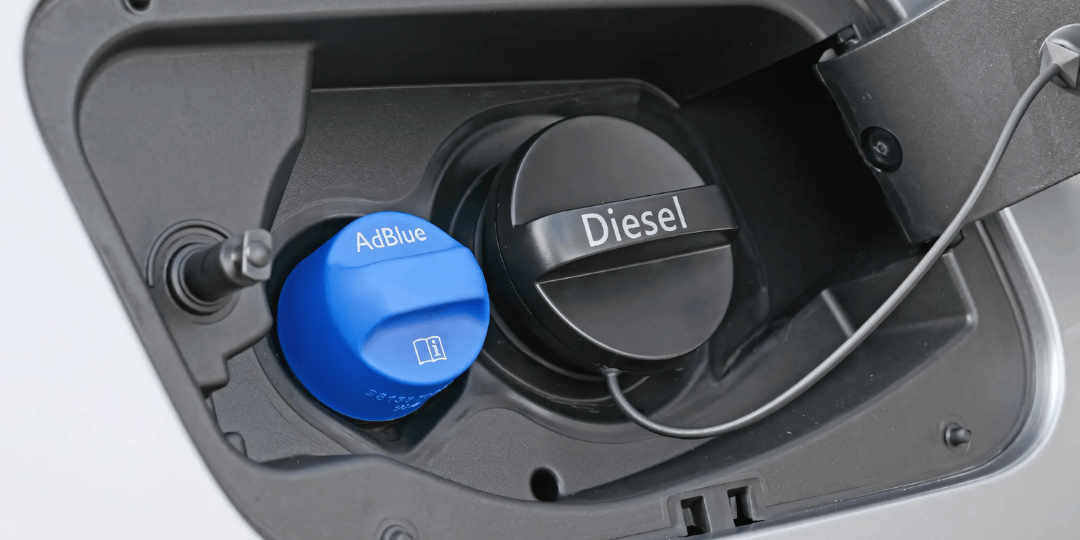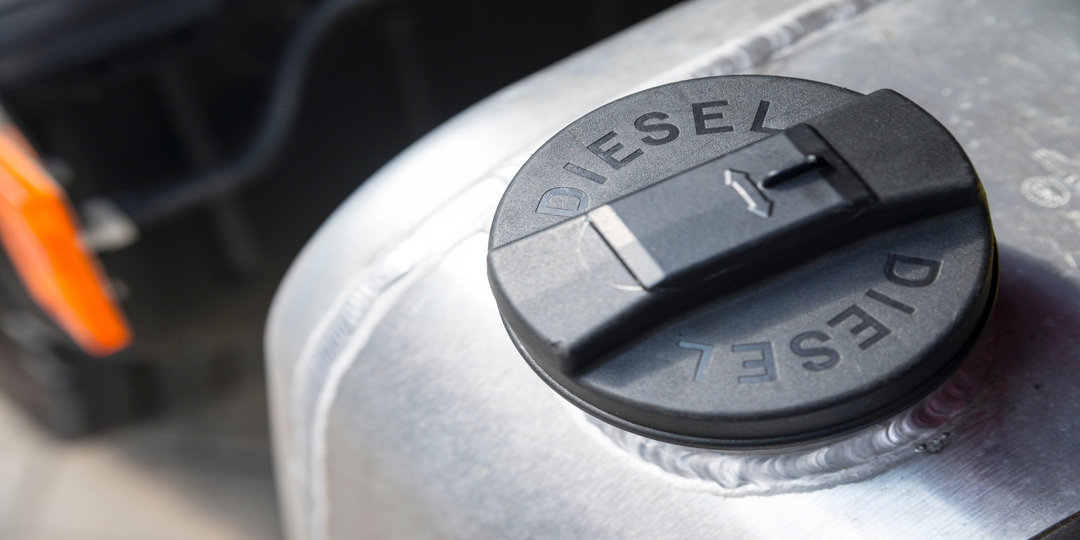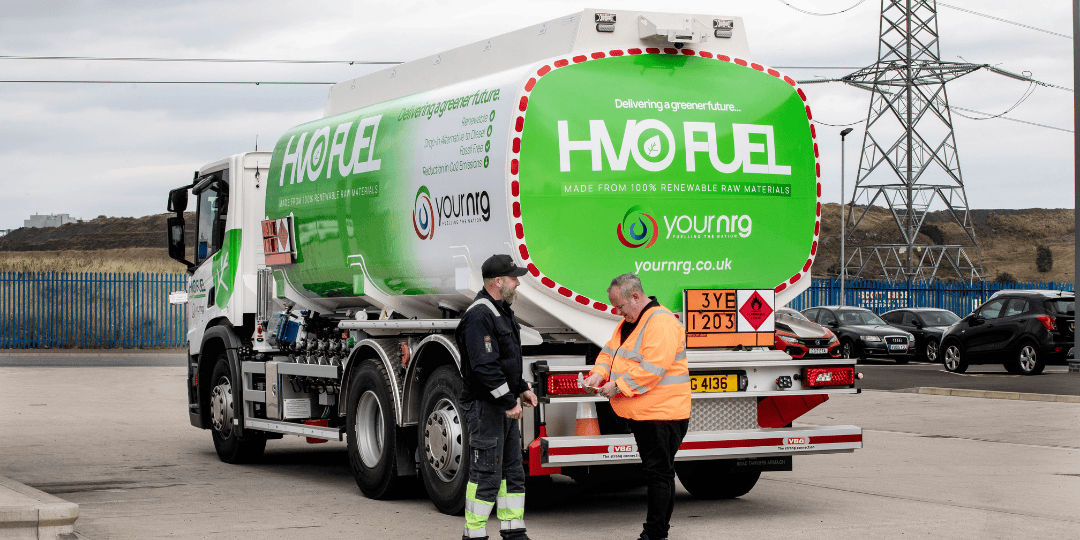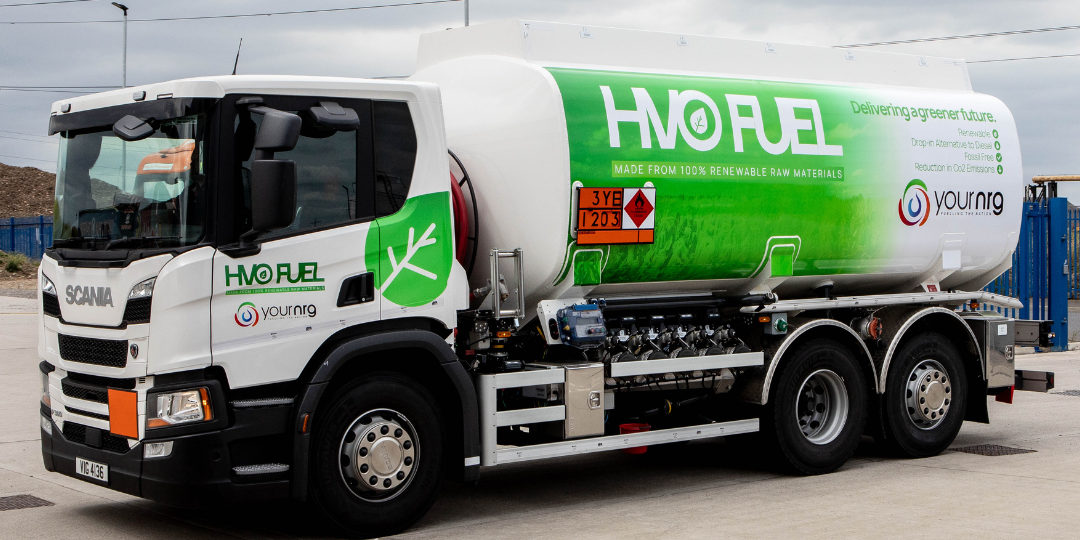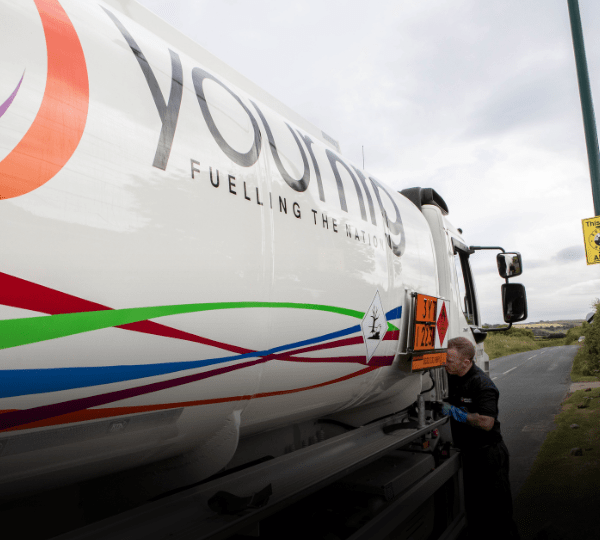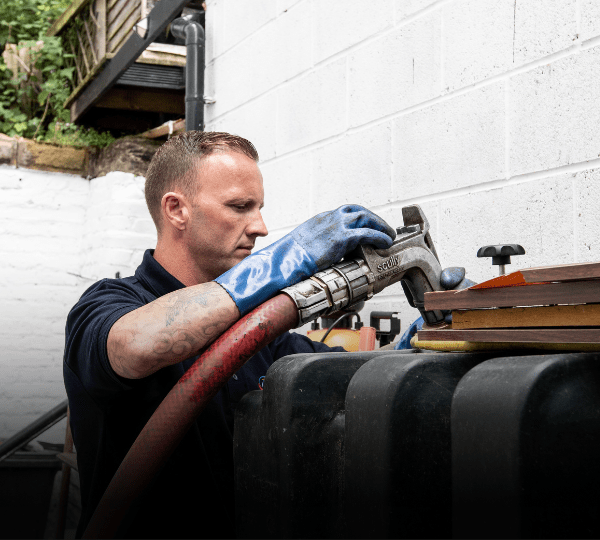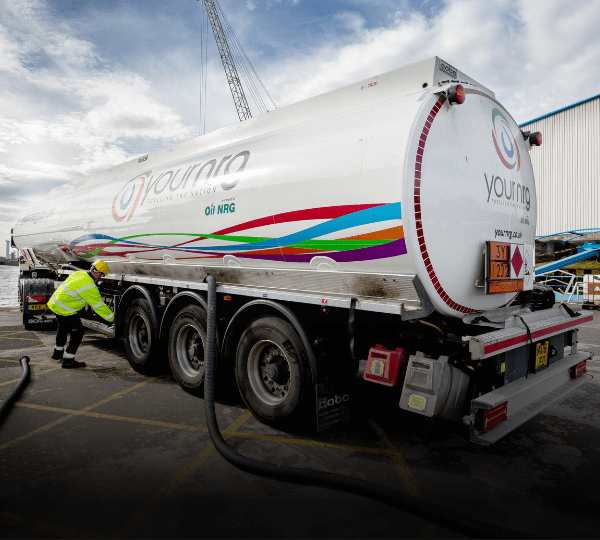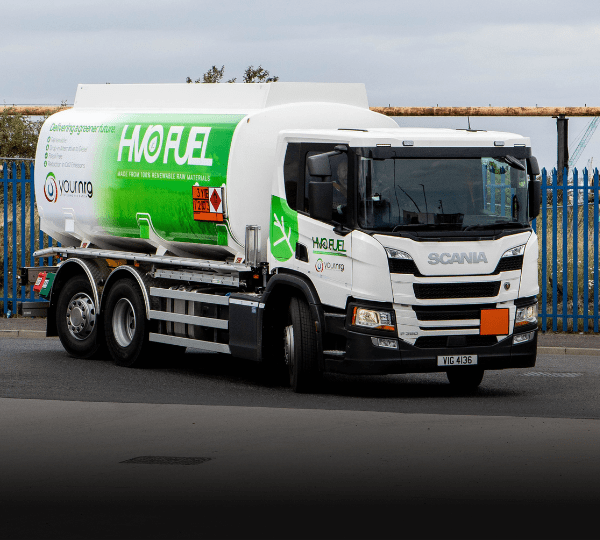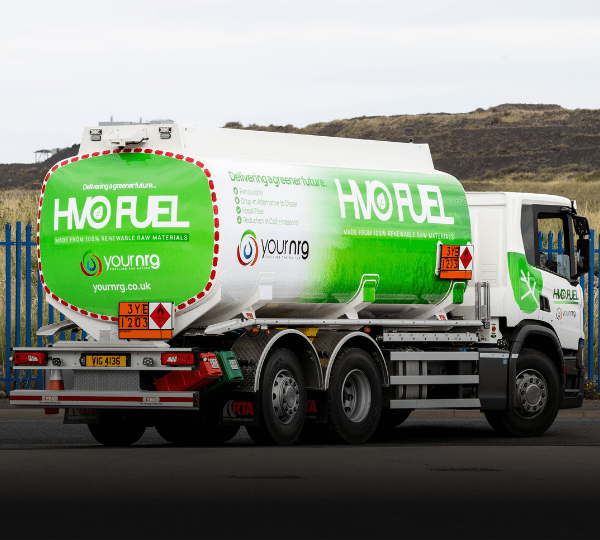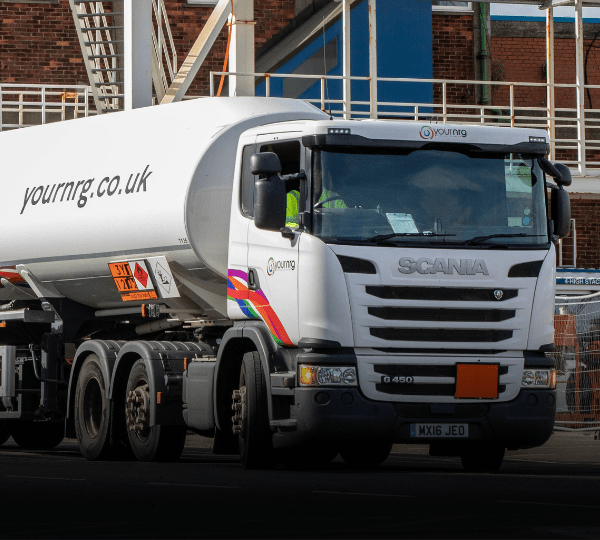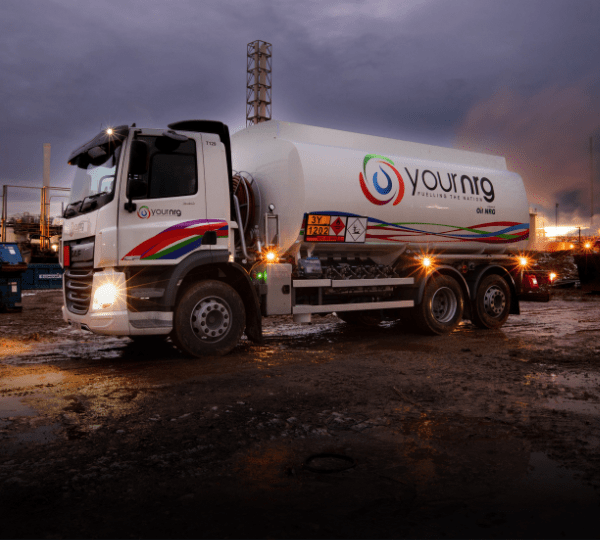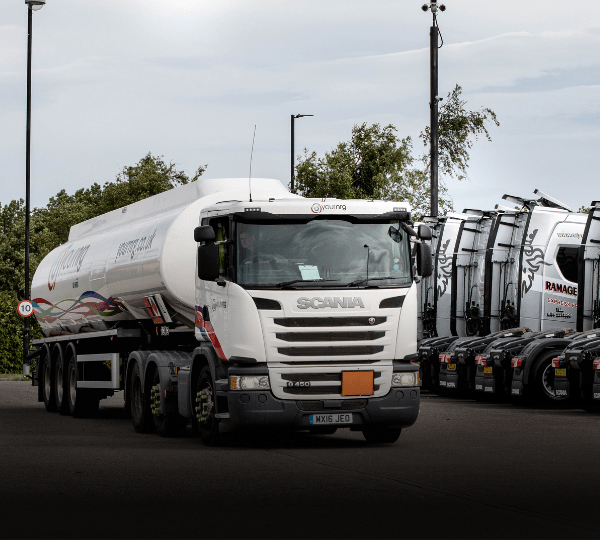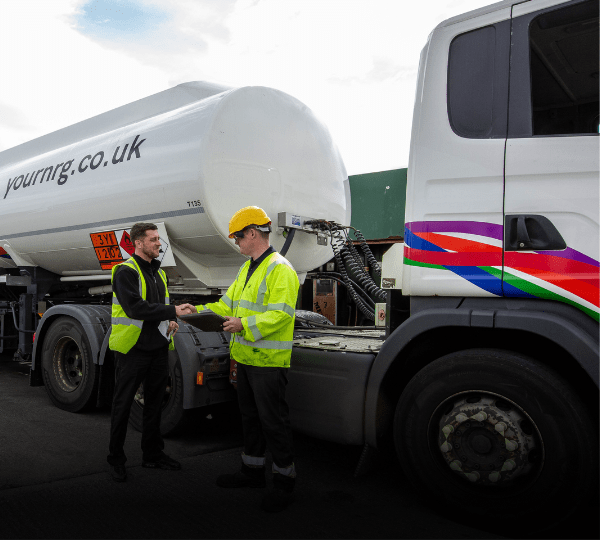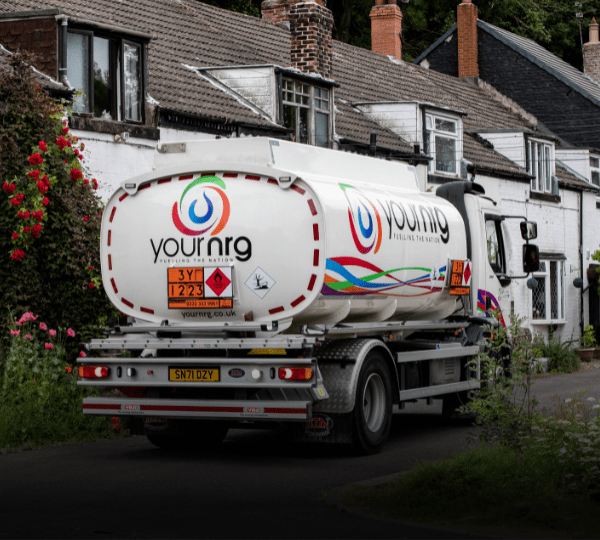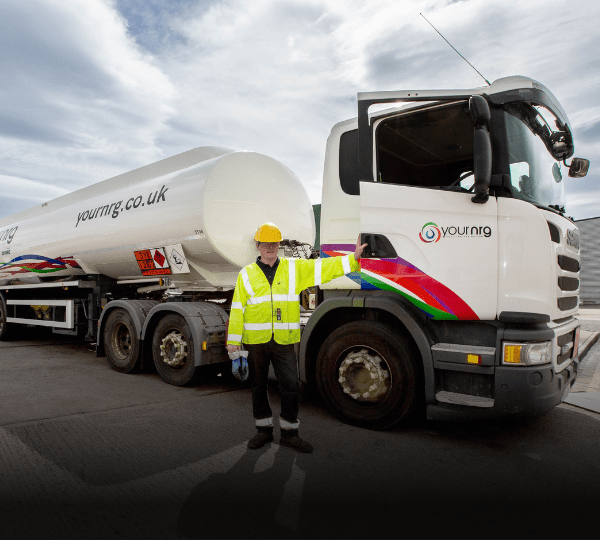Whether you're managing a delivery fleet or running heavy machinery on a construction site, keeping a reliable supply of AdBlue will help you reduce emissions and stay compliant with emissions laws. Let’s see what exactly AdBlue does and how to get yours reliably with Your NRG.
- What is AdBlue, and what does it do?
- Who uses AdBlue?
- Why is AdBlue important for businesses?
- Why should I order AdBlue from Your NRG?
What is AdBlue and what does it do?
AdBlue is a clear liquid used in diesel vehicles to reduce harmful emissions. It’s made from a mix of high-purity urea and deionised water and is stored in a separate tank in your vehicle. AdBlue is needed in vehicles equipped with Selective Catalytic Reduction (SCR) systems, a technology designed to meet strict Euro 6 emissions standards.
When injected into the exhaust system, AdBlue breaks down pollutants produced by diesel engines, like nitrogen oxide (NOx), into harmless nitrogen and water vapour. This reduces the vehicle’s environmental impact without affecting performance.
Who uses AdBlue?
AdBlue is used in a wide range of diesel-powered vehicles and machinery fitted with SCR systems – usually in commercial, agricultural, and industrial sectors. These include:
- Haulage companies
- Bus and coach operators
- Farmers and agricultural contractors
- Construction and plant operators
- Fleet operators and delivery businesses
- Public sector and local authorities
Why is AdBlue important for businesses?
AdBlue is important for businesses that rely on diesel vehicles or machinery, as it keeps them compliant with Euro 6 emissions laws. These regulate the levels of harmful pollutants vehicles can emit across the EU and the UK. AdBlue is needed for all Euro 6 diesel engines. Without it, any vehicle running in the EU or the UK could face a fine, fail emissions checks, or be restricted from low-emission zones. If your business is building sustainability goals, AdBlue can help cut harmful NOx emissions by up to 90%.
Why should I order AdBlue from Your NRG?
Your NRG works with trusted commercial partners to help you get the best deal on bulk AdBlue, ideal for hauliers, farmers, construction firms, and more. We make it easy to source the AdBlue you need, with straightforward pricing, flexible supply options, and personal support from our team. Don’t let high costs or patchy supply hold you back. Get a commercial AdBlue quote today and see how we can support your business.
AdBlue FAQs
What are the best practices for AdBlue?
To get the most out of AdBlue and protect your vehicles, follow these best practices:
- Only use certified AdBlue that meets ISO 22241 standards
- Keep AdBlue clean; contamination can damage your SCR system
- Top up before it runs low to avoid engine power restrictions or shutdowns
How should I store AdBlue?
AdBlue should be stored in a cool, dry, and well-ventilated area, ideally between -6°C and 25°C, away from direct sunlight and extreme temperatures. Use sealed containers made from approved materials, such as HDPE or stainless steel, and avoid contamination from dust, fuel, or oil.
How much does AdBlue cost?
The price of AdBlue can vary depending on the quantity ordered, delivery location, and market demand, though the more you order, the lower the unit price usually is.
How much AdBlue can I order?
AdBlue is available in a range of sizes – from small drums for single vehicles to large containers for fleet use. When you order AdBlue through Your NRG, you can purchase between 1,000 and 8,000L at a time.
